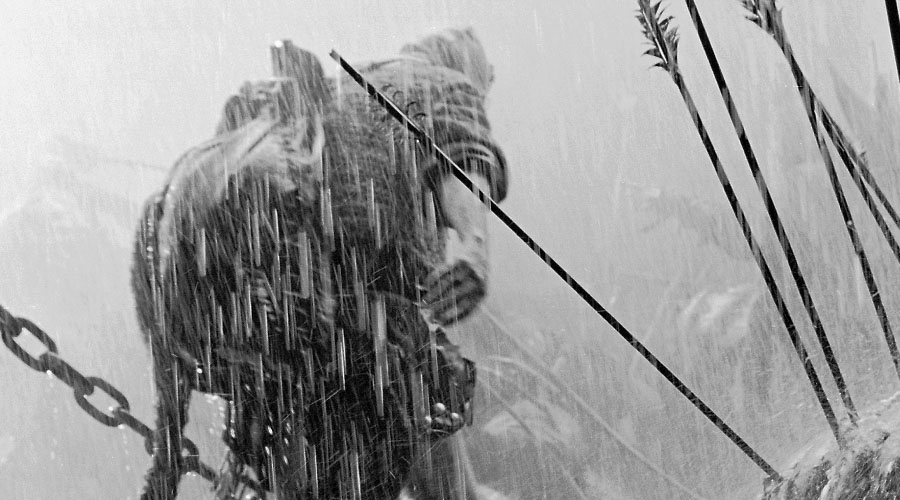One of the most remarkable figures of Soviet cinema, Aleksei German (1938-2013) is a filmmaker of singular daring and invention. Over a career that spanned six decades, he constructed vivid and meticulously detailed films in which the exactitude of history and the haziness of memory are inextricably intertwined.
With the exception of his final work, the Boschian sci-fi Hard to Be a God 2013, German’s films are all set within the post-Revolution pre-Khrushchev Russia of 1918-1953. This tumultuous milieu underpins his portraits of morally complex characters often teetering on the edge of calamity. Through these stories, German builds allegorical explorations of both his own past and the past of his compatriots.
German crafted a unique cinematic language that extends across multiple genres, from the wartime drama of Twenty Days Without War 1976 to the absurdist black comedy Khrustalyov, My Car! 1998. Noted for his wandering camera and overlapping dialogue, he evokes an immersive sense of time and place with his films, accentuated by rigorously researched production design and stunningly choreographed cinematography.
German’s films were met with both acclaim and controversy in his native Russia. His second film Trial on the Road 1971 was shelved by state censors for 15 years due to its revisionist portrayal of Soviet soldiers during the Second World War. In contrast, his 1985 masterpiece My Friend Ivan Lapshin was once voted the greatest Soviet film ever made in a poll of national critics. While his reputation overseas was eclipsed by peers such as Andrei Tarkovsky, the posthumous release of Hard to Be a God brought newfound international attention to the filmmaker’s extraordinary body of work.
‘Aleksei German: History through a Keyhole’ is a rare complete retrospective of the director’s feature films. It brings together a collection of archival 35mm prints and digital restorations, including prints of The Seventh Companion 1967 and Twenty Days Without War provided by the Russian state film archive Gosfilmofond. The program also includes a screening of the Kazakh epic The Fall of Otrar 1991 – co-written and produced by German, together with his wife and artistic collaborator Svetlana Karmalita – and Playback 2012, a documentary shot on the set of Hard to Be a God that provides fascinating insight into German’s filmmaking practice.
Aleksei German: History Though a Keyhole
13-21 March 2021
GOMA, Brisbane
www.qagoma.qld.gov.au




